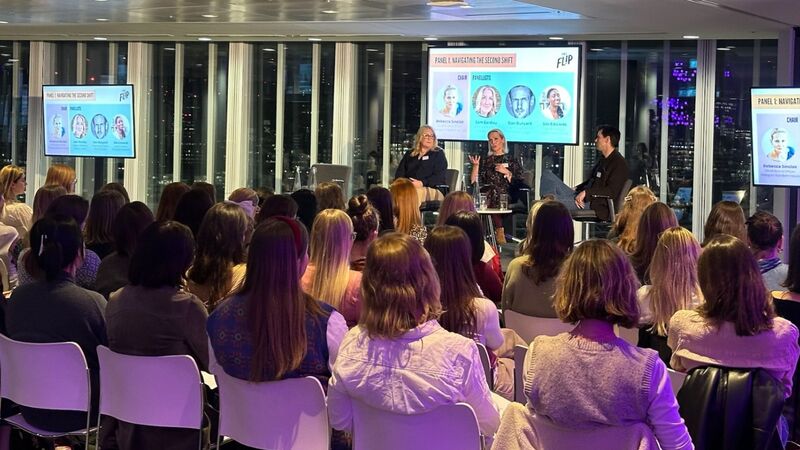You are viewing your 1 free article this month. Login to read more articles.
ACE's workplace report reveals 'inclusive leadership' but staff concerned with 'unresolved microaggressions'
Arts Council England has published an extensive external report into the diversity, inclusion and equality of the workforce which has praised its “inclusive leadership” but also identified concerns among staff over microaggressions in regards to race.
ACE’s National Council commissioned a management consultancy, the Nous Group, to conduct an independent review of the workplace. This followed the publication if its 2020 strategy, "Let’s Create". ACE said it aims to match "the same level of scrutiny and challenge that we are asking of organisations we fund”.
The 46-page report, Independent Review into Equality, Diversity and Inclusion: Findings and Recommendations Report, follows extensive engagement with ACE staff over a three-month period. It is based on survey responses from 430 employees, 35 one-to-one interviews and seven focus groups.
ACE scored most highly on "inclusive leadership and governance", "access" as well as "policies and processes", Nous said. It scored most low on "open and respectful culture" and "support".
The report was mostly positive about ACE’s workplace and processes: “The Arts Council’s ambitions for EDI [equality, diversity and inclusion] and staff colleagues’ expectations of the Arts Council in supporting EDI in the workplace are demonstrably high,” the document reads.
“The Arts Council has achieved commendable progress across several dimensions. This includes successes in diversifying the talent pool from which it recruits and taking actions to support staff with a wide range of protected characteristics, needs, and abilities to achieve pay parity.”
However the report identified several areas requiring improvement including the handling of grievance procedures and transparency of career advancement: there is “the need to improve transparency in advancement processes and some staff colleagues’ confidence that the Arts Council will fairly and transparently resolve formal and informal grievances", according to the report’s authors.
On career progression, the report reads: “Advancement processes for career development... are not consistently clear to staff colleagues and lack transparency for individuals with various protected characteristics, and that the Arts Council has limited internal progression pathways generally.” This contributes to inequities in representation, Nous said, with “managerial favouritism and unconscious bias” reported as other areas of concern.
ACE has also “not succeeded in building a culture that fully realises its EDI aspirations in all teams and regional offices” which has “contributed to mixed experiences for staff colleagues across a range of protected characteristics and at various stages of their lifecycle as employees of the organisation”, according to the report.
The analysis also identified a “disconnect” between ACE’s leadership’s “strong commitment to EDI and some day-to-day actions”. Nous said: “One major driver of this is that staff colleagues, including leaders, do not always understand the tensions for an arm’s-length body. This may contribute to some staff colleagues’ perception that leadership engagement with EDI appears tokenistic.”
While there was passion cited about ACE’s purpose and high expectations of EDI among staff, the document also described how “post-pandemic ways of working have challenged some staff colleagues” and “some staff have experienced unresolved microaggressions”.
The report suggests more progress is needed on racial equality at ACE: “Almost all staff colleagues of Black, Asian and ethnically diverse backgrounds who contributed to the review shared negative experiences at the Arts Council in relation to their race.
"These experiences appeared to be more frequent outside London, with lower visible ethnic representation. Several staff colleagues described experiencing or witnessing racial microaggressions. These often came in the form of patronising tones and attitudes, excluding colleagues from activities, assuming artistic expertise based on race, and confusing colleagues for others of the same (or the presumed same) ethnicity.”
The report identified a number of seven staggered steps for ACE to take over the next two years to address concerns, listed in level of priority.
One of the most critical – to be tackled over the next six months – is to ensure workplace adjustments are “applied consistently and improve awareness of supports”. Similarly critical is the need to improve transparency in the advancement pathways.
In the next rung of importance, the report recommended that over the next year ACE increases staff confidence and improve transparency in grievance processes and as a fourth recommendation, enhance the capability of managers and leaders to create an inclusive culture for all staff. Additionally the company should clarify the purpose and governance of staff networks to maximise their contributions.
Over the next 18 months, ACE should uphold the Public Sector Equality Duty to foster good relations between staff in relation to personal beliefs, Nous said. As a final recommendation, the report suggested ACE should reinforce its purpose and identity as a development agency for creativity and culture.
ACE said on its website: “We welcome the report and accept it’s recommendations. The recommendations give us clear actions that we’re tackling immediately, and we’re committed to making significant progress over the next 18 months.
“Our National Council will scrutinise our delivery and will commission the Nous Group to give an independent assessment of our progress at 12 and 18 months.”

















